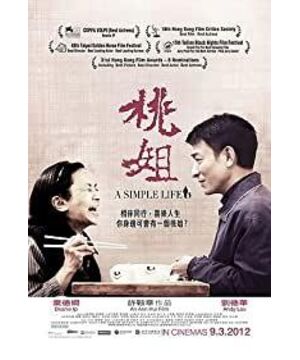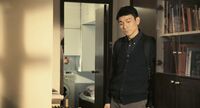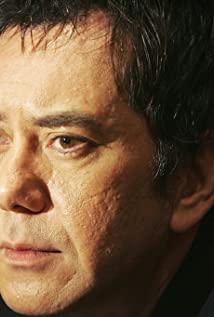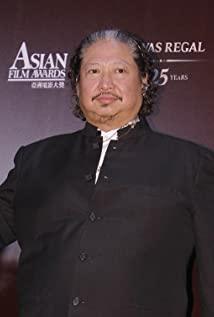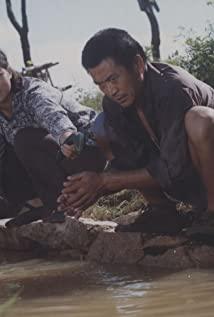Sister Tao never married and worked as a maid in Roger's house for a lifetime. According to the mainstream view of Chinese society, the evening scene of a woman like Sister Tao, who has no children and no husband, must be bleak. In fact, Sister Tao's later years were not bad. In order to find a suitable nursing home for her, Roger, the adopted son, ran around, inquired carefully, and paid all the expenses; Sister Tao did not forget to greet her when she was admitted to the nursing home, and often took her to go shopping for dinner; Take Sister Tao to the premiere of her own movie. Sister Tao is getting older, her body is deteriorating, and finally she is unable to move, and she is accompanied by a wheelchair all day long. Roger took Sister Tao out for a walk, and slowly pushed it along the small road under the bright sunshine in winter. From time to time, she made jokes and made Sister Tao giggling. This is probably the most tender scene in the film. People want to cry a little bit, thinking that even his own son is nothing more than that.
Although Sister Tao did not set up her own family, her fate in her later years was much better than that of many married women. The adopted son, Roger, loves her very much. Roger's mother also left a house for her to retire and die. When people in the world persuade women to enter marriage, they are nothing more than two things to lure her. Married women are more secure. Contrasted with another old lady in the nursing home. She is married and has a family. After her husband died, she was sent to a nursing home by her children. Her son did not pay attention to her, and her daughter occasionally came to perform filial piety and complained.
The patriarchal society has advocated for thousands of years that only marriage is the support of women. The reality is that Sister Tao, who has never been married for life, has some support, while her other sister has no one to care about.
View more about
A Simple Life reviews


